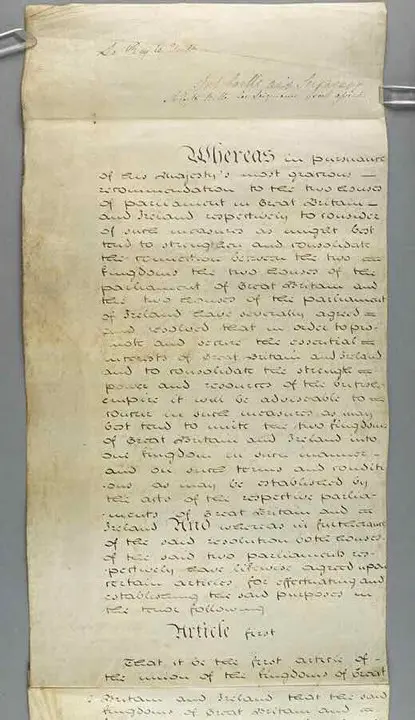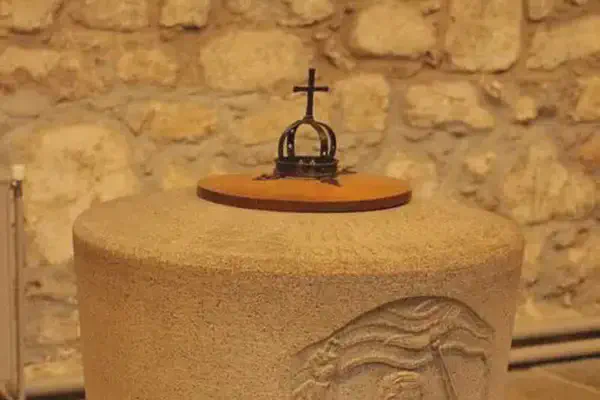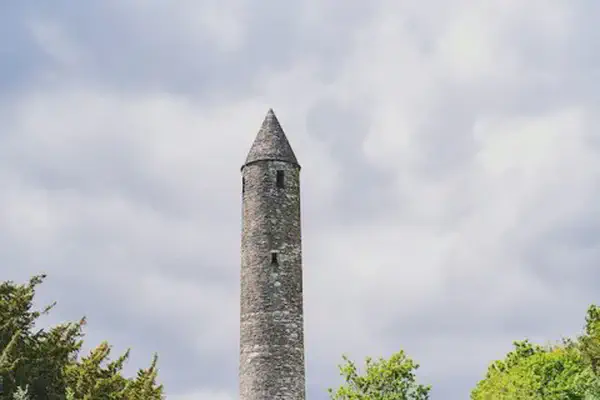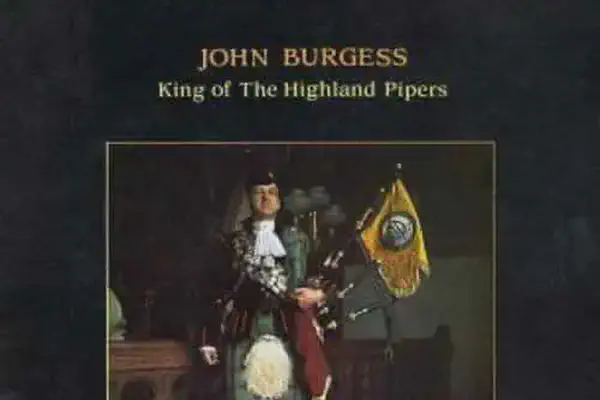On January 01, 1801 in Celtic History
Act of union goes into effect, merging the kingdom of great britain and the kingdom of ireland

Under the terms of the Union, which came into effect on 1 January 1801, the Irish Parliament was abolished; Ireland was given 100 MPs at Westminster whilst the Irish peerage were represented in the House of Lords by 28 of their number who served for life.
The Act of Union, which has gone into effect on several occasions throughout history, typically refers to the legislative acts that led to the political union of England and Scotland or, later, the union of Great Britain and Ireland. Here are the key Acts of Union and their respective dates:
Act of Union 1707 (England and Scotland)
The Act of Union 1707, also known as the Treaty of Union, went into effect on May 01, 1707. It united the Kingdom of England and the Kingdom of Scotland to form the Kingdom of Great Britain. This act created a single Parliament for both nations and marked a significant step in the formation of the United Kingdom.
Act of Union 1800 (Great Britain and Ireland)
The Act of Union 1800, also known as the Acts of Union 1800, went into effect on January 01, 1801. It merged the Kingdom of Great Britain and the Kingdom of Ireland to create the United Kingdom of Great Britain and Ireland. This union lasted until the Irish Free State (now the Republic of Ireland) gained independence in 1922.
Act of Union 1801 (Great Britain and Ireland)
The Acts of Union 1800 went into effect on January 01, 1801, uniting the Kingdom of Great Britain (which included England, Scotland, and Wales) and the Kingdom of Ireland into a single political entity, the United Kingdom of Great Britain and Ireland.
It’s worth noting that the Act of Union 1801 involving Ireland was later repealed with the Government of Ireland Act 1920, which partitioned Ireland into Northern Ireland and Southern Ireland, and subsequently, the Anglo-Irish Treaty of 1921 led to the establishment of the Irish Free State in 1922. Northern Ireland remained part of the United Kingdom.
These Acts of Union had a profound impact on the political and constitutional history of the British Isles and played a role in shaping the United Kingdom as it is known today.
Related Content

Shane Patrick Lysaght MacGowan, lead singer of the Pogues, died

St Machar Day, patron saint of Aberdeen

Oíche Shamhna - Cetlic New Year Eve (Halloween)

ALBAN ELFED (Welsh Bardic name for autumn equinox)

Feast day of St. James

John Davie Burgess, King of the Highland Pipers, died at age 71.